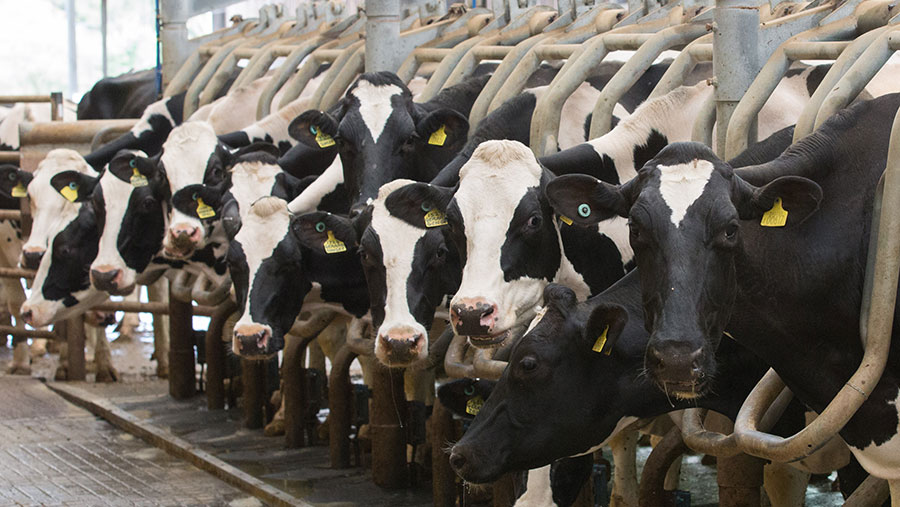Look to future markets to cut volatility, farmers told
 © Tim Scrivener
© Tim Scrivener Futures markets could help reduce milk price volatility but need more development, producers and processors were told this week.
Farming bodies and financial experts met to analyse how farmers can reduce exposure to the violent price fluctuations that have plagued dairy globally in recent years.
The event, hosted by NFU Dairy on Thursday (6 April), focused primarily on the dairy futures market, and how it can work for UK producers.
See also: Milk production costs set to continue above farmgate prices
Using the futures market would allow producers to forward sell a proportion of their milk for a fixed price over a designated amount of time, the conference heard.
This offsets the risk of low prices, but also means producers could miss out when milk prices spike.
Exposure risk
Brian Rice, founder and co-owner of Rice Dairy in the US, where farmers use futures far more, said the real risk was leaving yourself exposed to highly volatile dairy markets.
“It’s time for years of civil war between processors and producers to end,” he explained.
“The futures market can help to stabilise prices for both sides of the supply chain and encourage working together.”
Mandatory price reporting
Mr Rice added for this system to work, Defra would need to introduce mandatory price reporting for milk, and current production and pricing statistics took too long to filter through.
But this will not be something usable at farm level yet, said Charlie Hyland, commodity risk manager at financial tools and advisory company, FC Stone.
“At this early stage, I envisage the futures market being used by processors on behalf of producers who can choose to opt into the scheme.”
Mr Hyland added using hedging on futures markets was complex for farmers to do on their own, and would only be accessible to farmers forward selling more than 100,000 litres/month.
Hedging
Muller recently announced its new contract would allow producers to hedge up to 25% of their milk on the European Energy Exchange.
The UK’s second largest processor said it was nine months into working on creating a futures market option, which would be available to its 1,400 producers in July.
However, Farmers For Action chairman David Handley issued a cautious warning to any farmers using futures market options.
He said there were lots of risk management tools available to farmers and using futures markets were just one of them.
“Farmers should look at lots of different ways of reducing volatility,” he added.
